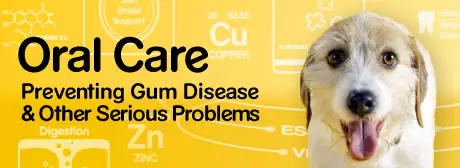As a dog owner, you undoubtedly prioritize your furry companion’s health, but how often have you considered their dental hygiene? While vaccines, nutritious diets, and regular vet visits are often at the forefront of our minds, oral care remains an overlooked facet of canine health. The statistics are alarming: approximately 80% of dogs older than three years develop periodontal disease. This is not merely a cosmetic issue; it’s a precursor to a range of severe health problems.
The Ripple Effects of Neglecting Dental Care
Periodontal disease transcends the simple issue of bad breath and discolored teeth. Bacteria from an infected mouth can enter the bloodstream and wreak havoc on vital organs, including the heart and kidneys. It’s shocking to think that neglecting something as simple as brushing could have life-threatening implications for our obedient companions. Thus, emphasizing a dedicated oral care routine is imperative not only for maintaining the aesthetics of your dog’s smile but also crucial for their overall well-being.
The Silent Onset of Oral Disease
You might be surprised to learn how precariously oral issues can escalate. After a meal, remnants of food cling to the teeth, creating an ideal breeding ground for bacteria to flourish. If left unaddressed, these food particles mix with saliva and bacteria to form a biofilm known as plaque. Over time, plaque hardens into tartar, which makes it even easier for more plaque to accumulate, leading to gingivitis. Caution: gingivitis is often the first warning sign of serious dental issues and can escalate into full-blown periodontal disease if not treated promptly.
Signs to watch for include persistent bad breath, reddened and swollen gums, and even bleeding during chewing. While gingivitis is usually reversible with immediate intervention, failure to act can lead to periodontitis, a grim condition that cannot be reversed and can result in tooth loss and severe infections. Thus, instilling a proper oral care routine early on is paramount for prolonging your dog’s quality of life.
Daily Oral Hygiene: The Gold Standard
Establishing a daily brushing routine is the most effective strategy for keeping your dog’s teeth clean. Dog-specific toothbrushes and soft-bristled human alternatives can be utilized, but do not use human toothpaste, as it can be harmful to dogs. It’s essential to employ toothpaste formulated for dogs, which is safe to ingest and often flavored to appeal to canine palettes.
In addition to brushing, regular veterinary check-ups and professional cleanings are crucial. Your veterinarian can offer expert insights and identify potential problems before they escalate, much like regular health check-ups for humans. Dental care is a preventive measure that can save both lives and hefty vet bills down the line.
Nourishing Their Smile: The Importance of Diet
The food you choose plays an indispensable role in maintaining oral health. Research shows that dry kibble can help reduce tartar and plaque accumulation, thereby supporting better dental hygiene. Brand recommendations, such as PEDIGREE®’s specialized adult recipes featuring a unique X-shaped kibble, are designed to clean down to the gum line as your dog chews. Including specially formulated dental treats, like PEDIGREE® DentaStix®, can further bolster your efforts by clinically proving to reduce tartar buildup significantly.
But it’s equally important to avoid human food. Even though your dog might beg for table scraps, such indulgences can lead to excess calories and promote plaque and tartar formation. Therefore, maintaining a nutritious kibble-based diet with oral health treats is a win-win for both you and your pet.
Vigilance is Key: Recognizing Red Flags
As conscientious pet owners, it is crucial to remain vigilant about dental health signs. Red and swollen gums or any visible discomfort while chewing should spur immediate veterinary consultation. Ignoring these early warnings could lead to more severe and costly health problems. Regular communication with your vet about your dog’s dental health is essential; their expertise can offer targeted advice and treatments that keep your dog healthy.
The path to a vibrant, healthy dog is often paved with the simple yet impactful act of ensuring good dental care. By integrating daily brushing, making informed dietary choices, and maintaining regular veterinary exams, we can enhance our pets’ quality—and longevity—of life significantly. After all, a healthy mouth is the gateway to a happy dog.

